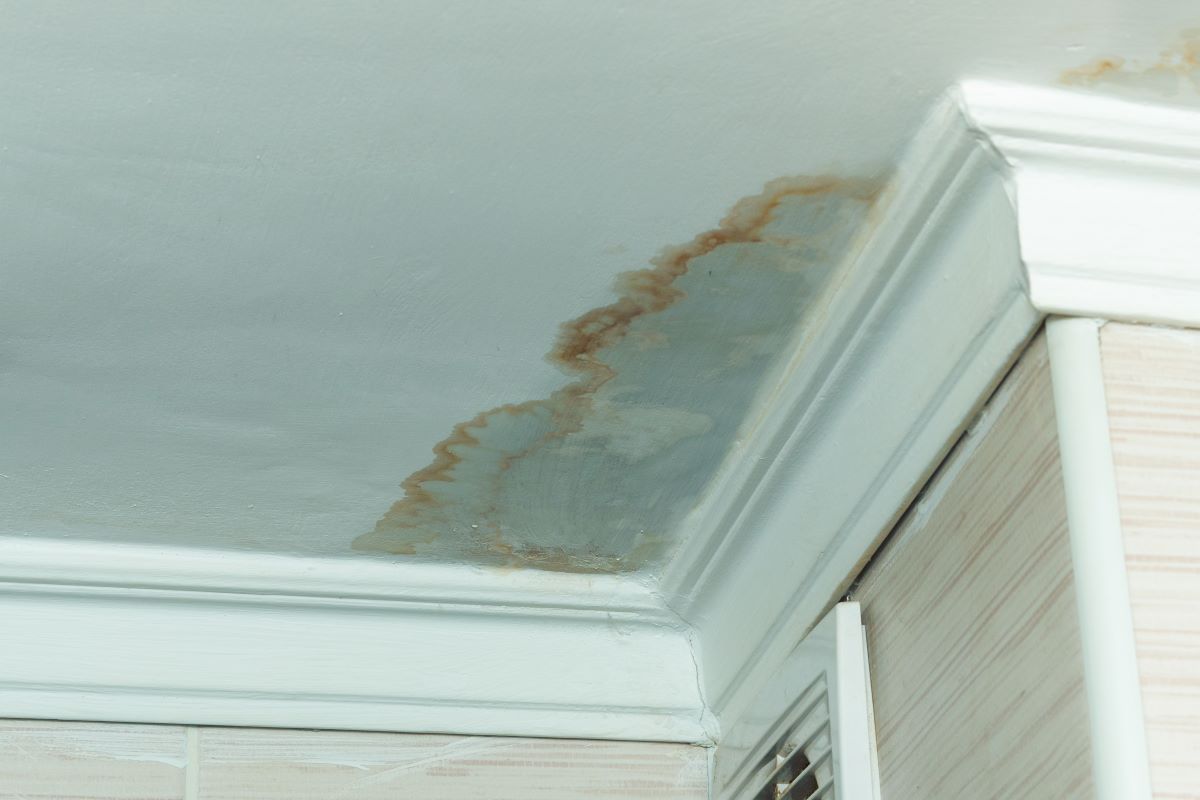
Key Takeaways:
- Homeowners insurance policies typically cover sudden and accidental water damage that results from burst pipes, appliance malfunctions, or roof damage caused by storms.
- Understanding the specifics of your home insurance policy is crucial to determine what types of water damage are covered and excluded.
With the rise in water damage incidents, understanding your home insurance coverage has never been more important. This comprehensive guide explores the question: does home insurance cover water damage?
Whether you reside in a single-family home, mobile home, or condo/townhouse (where an association policy may be primary), there are insurance options to address water damage. We will navigate different scenarios, from plumbing issues to roof leaks and mold, offering valuable insights and practical advice to manage water damage insurance claims.
Unpacking Home Insurance Coverage for Water Damage
Home insurance policies are crafted to shield homeowners from various risks, including water damage. However, coverage specifics can be intricate and vary among policies. Typically, standard home insurance policies cover sudden and accidental water damage, like burst pipes or appliance failures.
Sudden and accidental water damage, a common inclusion in most standard homeowners insurance policies, refers to unforeseen events such as burst pipes or appliance malfunctions that result in immediate and substantial water damage to your property. The essence of this coverage lies in the unexpected and sudden nature of the incident, meaning the damage must have occurred without warning due to an unforeseen event.
This type of coverage can provide financial assistance for repairs and restoration, ensuring you are not solely responsible for the full cost of sudden water damage, covering expenses like carpet and drywall replacement, as well as personal property such as furniture and appliances.
What About Slow Leaks and Lack of Maintenance?
In contrast, gradual leaks and damages from poor maintenance are typically excluded from standard homeowners insurance policies. These exclusions relate to damages that develop slowly over time, like a dripping pipe or roof leaks due to neglected maintenance.
Insurance companies view these issues as preventable and within the homeowner’s control to address before they cause significant damage. Consequently, damages resulting from neglect or wear and tear are not covered, leaving homeowners accountable for repair costs.
Know Your Policy Before You Need It
Understanding the specifics of your insurance policy is critical to avoid surprises when filing a claim. Familiarize yourself with the terms and conditions, including what types of water damage are covered and excluded, to take proactive steps in maintaining your property and ensuring adequate protection.
Regular maintenance and timely repairs play a vital role in reducing the risk of damage not covered by insurance, offering peace of mind and financial security.
Does Home Insurance Cover Water Damage from Rain and Flooding?
Most standard homeowners insurance policies cover rainwater damage if it results from a covered peril. This means that if rainwater enters your home due to an event such as a windstorm damaging your roof or windows, your policy will likely cover the resulting water damage.
The key lies in the rainwater entering due to a specific incident listed as a covered peril in your policy. This could include scenarios like a tree falling on your house during a storm or high winds ripping off shingles, allowing rain to infiltrate your home.
How Does Flood Coverage Differ?
Contrarily, flood damage is generally not covered in standard homeowners insurance policies and necessitates a separate flood insurance policy. Flood insurance is essential to protect your home and belongings from the potential devastation caused by floodwater. Flooding, defined as water inundating dry land from sources like rivers, lakes, or heavy rainfall, requires additional coverage through the National Flood Insurance Program (NFIP) or private insurers. Assessing your flood risk is crucial in determining if you require additional coverage.
Considering the escalating threat of severe storms and climate changes, factors like your home’s proximity to water bodies, local topography, and historical flood data should be taken into account. Even if you reside outside a high-risk flood zone, flood insurance can offer valuable protection as floods become more frequent in previously unaffected areas.
Does Home Insurance Cover Water Damage from Appliances and Plumbing?
Modern homes feature a range of appliances and plumbing systems that, while convenient, pose risks of water damage. Malfunctions in appliances like washing machines, dishwashers, and water heaters can lead to significant water damage. So, does home insurance cover water damage from appliances and plumbing?
Typically, sudden and accidental damage from appliances and plumbing is covered in most standard homeowners insurance policies. This coverage extends to incidents such as burst washing machine hoses, unexpected dishwasher leaks, or frozen pipes bursting.
These events are considered unforeseen and happen abruptly, resulting in immediate and substantial damage. Insurance policies often provide financial protection for repairs and restoration needed to rectify damages caused by such sudden occurrences.
Maintenance is Crucial
Regular maintenance is essential to prevent gradual leaks that are not covered by insurance. Policies usually exclude damages arising from a lack of maintenance or gradual wear and tear. This encompasses slow leaks from appliances or plumbing that worsen over time due to negligence.
Homeowners are tasked with maintaining their property, and regular maintenance can help detect and resolve minor issues before they escalate into major problems. Timely inspections and repairs are vital in averting slow leaks and ensuring your home remains in good condition.
Document Maintenance and Repairs
Meticulously documenting appliance maintenance can bolster your insurance claims. Keeping detailed records of maintenance activities, like service receipts, inspection reports, and repair logs, can demonstrate proactive measures taken to maintain appliances and plumbing systems.
In the event of a sudden and accidental damage claim, this documentation serves as evidence that damage was not due to neglect, aiding in the streamlined processing of claims and increasing the probability of claim approval, offering necessary financial assistance for repairs.
Does Home Insurance Cover Water Damage from Roof Leaks?
A leaky roof is a nightmare for homeowners, often raising the query: does home insurance cover water damage from roof leaks?
The coverage depends largely on the cause of the leak. If a roof leak stems from a covered peril, such as a storm or a falling tree, resulting water damage is typically covered by home insurance.
Conversely, if the leak results from wear and tear or lack of maintenance, the damage may not be covered. It’s imperative for homeowners to conduct routine roof inspections and maintenance to ensure their roof is in good condition and comprehend the terms of their insurance policy.
Does Home Insurance Cover Water Damage and Mold?
Mold resulting from covered water damage events is typically included in standard homeowners insurance policies. If mold growth occurs due to an insured peril, like a burst pipe or sudden appliance leak promptly addressed, the cost of mold remediation and repairs is usually covered.
Insurance policies acknowledge that mold can develop swiftly following unexpected water damage events and provide protection for necessary cleanup and mitigation to restore a safe living environment.
However, mold stemming from prolonged moisture issues is usually not covered. This includes mold growth due to persistent leaks, high humidity, or neglected maintenance over an extended period.
Insurance companies deem these scenarios preventable and within the homeowner’s responsibility to address before they escalate. Consequently, damages from mold due to chronic moisture issues are often excluded from coverage, leaving homeowners to bear the financial burden of remediation and repairs.
Acting promptly and implementing preventive measures are vital in mitigating mold risks. Addressing water damage promptly, thoroughly drying affected areas, and fixing leaks or moisture sources can deter mold growth.
Regular inspections and maintenance, like leak checks and ensuring proper ventilation, can also prevent conditions conducive to mold development. By taking proactive measures, homeowners can decrease the likelihood of mold problems and ensure that any mold arising from covered events is managed effectively.
Water Damage Insurance Claim Tips
Filing a water damage insurance claim can be challenging. To ensure a seamless and successful claim process, follow certain steps and best practices:
- Document property damage thoroughly with photos and videos, a crucial step when dealing with damage. Visual evidence provides a detailed account of the damage’s extent and nature, crucial for supporting your insurance claim. Capture all affected areas and items from various angles, including close-ups of specific damages. This documentation is invaluable in evaluating the damage and confirming your claim with the insurance company.
- Report the damage promptly to your insurance company to initiate the claims process swiftly. Timely reporting is often required by insurance policies, and delays could impact your claim outcome. Provide all necessary details and submit documented evidence to your insurer for a smooth and efficient evaluation.
- Make temporary repairs to prevent additional damage and retain receipts for all expenses incurred. Taking immediate action to mitigate further damage, like covering broken windows or tarping a damaged roof, is not only practical but often mandatory under your insurance policy. Keep all receipts for materials and services used in these temporary repairs, as they may be reimbursable under your claim.
- Understand your policy’s coverage limits and deductibles to manage expectations and financial responsibilities.
Comprehend your policy specifics, including the maximum coverage amount and deductible you must pay out-of-pocket before insurance coverage applies. This knowledge will help navigate the claims process effectively and prepare for any expenses not covered by your insurance.
The Importance of Understanding Your Coverage
Homeowners insurance offers vital protection against various water damage forms, but comprehending your policy specifics is crucial. Coverage usually extends to sudden and accidental damage caused by events like burst pipes, appliance malfunctions, and storm-related breaches.
These unforeseen incidents can result in significant and immediate harm, with insurance policies designed to alleviate the financial impact by covering necessary repairs and restoration.
However, it’s equally vital to understand the exclusions within your policy. Gradual leaks and maintenance issues, developing over time due to neglect or lack of upkeep, are generally not covered. Homeowners must assume responsibility for regular maintenance and prompt repairs to prevent such damages.
Similarly, mold from long-term moisture issues is often excluded from coverage, emphasizing the need for proactive measures to manage humidity and address potential water problems before they escalate.
Document, Document, Document
Implementing prompt action and comprehensive documentation are key to maximizing homeowners insurance benefits. In case of water damage, document the damage extensively with photos and videos, report it promptly to your insurance company, and make temporary repairs to prevent further harm. Retaining receipts for these repairs can strengthen your claim and ensure reimbursement for out-of-pocket expenses.
Additionally, comprehending your policy’s coverage limits and deductibles will aid in navigating the claims process effectively and prepare you for any uncovered expenses. With the right knowledge and preparation, you can maneuver through the complexities of home insurance and safeguard your home against unexpected water damage challenges.
Contact einsurance.com for home insurance quotes or bundles including home and auto insurance.








